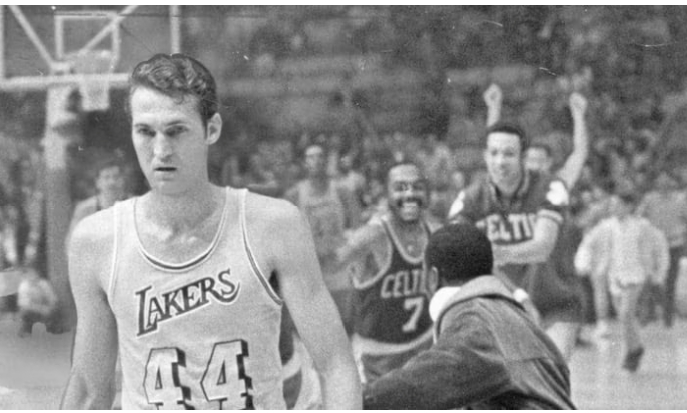That’s what Bill Russell told Jerry West during warmups ahead of the 1969 NBA Finals. The league was still in its early days, wrapping up a second golden age after the Mikan era, and closing out the most dominant run basketball had ever seen. Russell was entering his final season—now as a player-coach—and once again faced a Lakers team built to finally topple their eternal rivals. Boston had blocked their title hopes six times in the past decade.
This time, L.A. loaded up: Wilt Chamberlain, the record-breaker himself, joined West and Elgin Baylor to bring the championship back to the City of Angels for the first time since 1954. It felt like their moment—real, tangible. The Lakers were the heavy favorites. The Celtics, fading and full of doubt. With the series tied 3–3 after six games, the entire basketball world watched the Forum as the stage was set for the NBA’s most thrilling season finale to date.
Even the biggest franchises have their darkest days. That includes the Lakers, arguably the NBA’s greatest franchise by story and by silverware, even though they trail Boston in titles after the Celtics took the lead again last season. Back then, it was all Boston. Eleven rings in thirteen years, all orbiting around Bill Russell. Point guard Sam Jones won ten with him. Red Auerbach coached nine of those, still only surpassed by Phil Jackson, who hit ten in 2009 and eleven a year later. Auerbach was a visionary: in 1950, he drafted Chuck Cooper, the first Black player in league history,
In 1967, after missing the Finals for the first time since ’56, Auerbach stepped away from coaching (cigar and all) and took charge behind the scenes, staying with the franchise until his death in 2006. Russell took the reins as player-coach, a role no longer permitted, although LeBron sometimes seems to do both. In 1968, Russell led Boston to a tenth championship, again over the Lakers. The pain never left Elgin Baylor (0-for-8 in Finals) or Jerry West, who would finally win a title three years later but never got over the torment of facing Russell’s Celtics. West reportedly vowed never to wear green again. No color in the spectrum has ever been more hated.
At 7′1″, Wilt towered over his rival. He shattered records with the Philadelphia Warriors (later the Sixers) but, like the Lakers, was often stopped by Boston. He had won a ring in ’67, the one year Boston missed the Finals, but even his 100-point game and 50+ scoring averages couldn’t overcome the Celtics wall. Van Breda Kolff coached a star-studded Lakers squad to 55 wins in the West, seven more than Boston, who finished with 48 in a rocky season signaling their end.
In the playoffs, L.A. beat the San Francisco Warriors (4–2) and the Atlanta Hawks (4–1) to reach their seventh Finals since ’59—all against Boston. The Celtics, fourth in the East, got past the Sixers (4–1) and Knicks (4–2), who had swept the 57-win Bullets in the semis, knocking out MVP Wes Unseld. For the first time, the Lakers had won more regular season games than Boston and, for the first time ever, had home-court advantage in the Finals. It was win or bust in a rivalry that would later explode in the ’80s with Magic vs. Bird and spark again in the 2000s with Kobe vs.
the Big Three. Those later battles (2008, 2010) echoed what was built in ’69: the most iconic war in basketball history.

